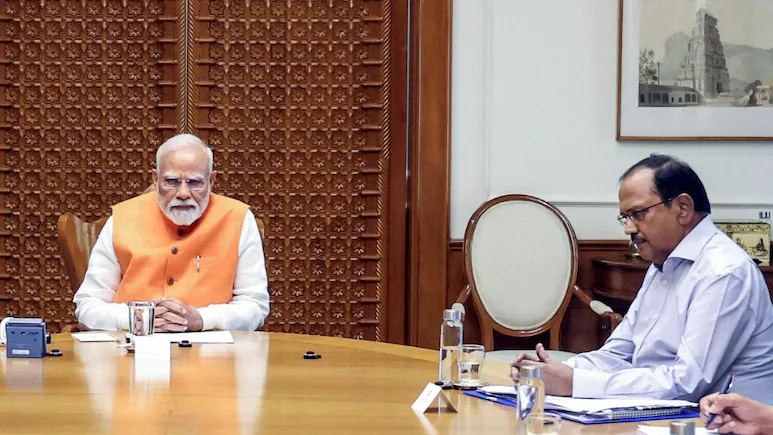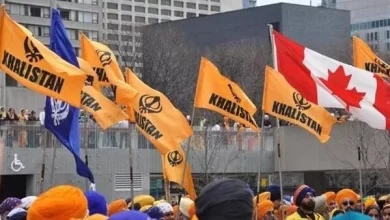
NSA Doval Meets PM Modi Amid Tensions With Pakistan Over Pahalgam Attack
Prime Minister Narendra Modi met National Security Advisor Ajit Doval Tuesday morning amid continuing tension and speculation over India’s military response to the Pahalgam terror attack.
This is the second time the Prime Minister has been briefed by the NSA in the past 48 hours, and it comes a day before state governments will conduct mock security drills – for the first time since the 1971 war with Pakistan – for “effective civil defence in the event of a hostile attack”.
Mr Modi has held multiple high-level meetings – with Defence Minister Rajnath Singh, NSA Doval, Chief of Defence Staff General Anil Chauhan, and the Army, Navy, and Air Force chiefs – over the past few days, accelerating talk of military action against the Lashkar terror group.
Last week the Prime Minister met Mr Doval and General Chauhan, and gave the armed forces ‘complete freedom to decide on the mode, targets, and timing’ of India’s military response.
The April 22 Pahalgam attack – in which 26 people, mostly civilians – were killed was the worst terrorist incident in India since the 2019 Pulwama attack, in which 40 soldiers were killed.
The Resistance Front, a known proxy of Pakistan-based Lashkar, claimed the attack.
In addition, Delhi has also said it has proof the Pakistan deep state – frequently called out for support of cross-border terrorism – was once again involved in planning a terror attack on India.
The Pakistan government has denied any connection with the Pahalgam attack, and demanded an independent, international investigation into India’s claims.
Since the attack, India has announced a raft of diplomatic restrictions, including revoking visas for Pakistan nationals and suspending the 65-year-old Indus Waters Treaty, or IWT.
Suspension of the IWT was a critical step since the Indus and two of its tributaries irrigate nearly 80 per cent of Pakistan’s farms. The IWT also prohibited India from constructing additional storage facilities that, in theory, could be filled to cut off, fully, all water supply to Pakistan.
However, now that this treaty is on hold, India has begun increasing storage levels, building new dams, and creating additional hydroelectric projects, all of which will reduce, or affect, supply.





